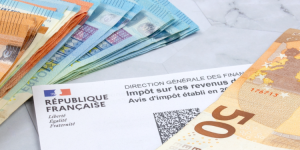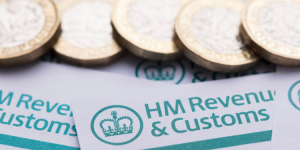
There are many reasons for moving abroad, like better career opportunities, higher wages, a better quality of life, higher living standards, etc. But have you ever considered the different types of taxes you could pay as an expat employee, business owner or retiree?
In the COVID-19 era, countries around the world are struggling with the current economic downturn. Add to that borders closures and travel restrictions, and unemployment rates globally. But some of them have found a way to attract foreign investment and thus attract expats. Unfortunately, only the wealthiest expats will be able to benefit from these special programs. For those who are looking to boost their career or start a business abroad, tax rates do matter a lot! Very often on the Expat Forum, people are asking questions like "Do I have pay taxes as an expat?", "Which types of taxes do expats have to pay?" or "Which are the countries with the most tax benefits?"
Middle East countries for zero taxation
The United Arab Emirates is one of the most prosperous and attractive countries in the Middle East for various reasons. Career opportunities for qualified and skilled expats are abundant at all levels, and salaries are very attractive. Besides, whether they have settled in Dubai, Abu Dhabi or another emirate, foreign professionals in the United Arab Emirates enjoy a wide range of benefits as part of their employment contract, including accommodation, transportation, and even children's schooling fees. But zero income tax is by far the greatest benefit of moving to the UAE as a worker or entrepreneur, except for the 5% value-added tax on products and services. Even though the cost of living in the UAE is higher compared to other countries, The absence of income tax is a significant relief for working expats. Besides enjoying a higher standard of living, they can also save money for their future projects and invest in property in the UAE.
Saudi Arabia is another popular expat destination for its zero-tax policy. Besides, Saudi Arabia is one of the countries with the highest expat remittances. However, the COVID-19 pandemic has had a considerable impact on immigration to Saudi Arabia. The expat exodus of expatriates over the past year is now favouring 'Saudisation', which means giving priority to local workers. Oman, Qatar and Kuwait also provide certain tax benefits for expat workers, but there are many other issues to consider before relocating there.
The close link between taxes and entrepreneurship
The dynamism of a country's start-up ecosystem is undoubtedly a crucial element to consider when deciding to start a business abroad. Many countries, such as Singapore, Hong Kong, the United States, Denmark and Sweden, have set up a range of incentives for entrepreneurs. For example, they get to benefit from an advanced infrastructure, a skilled and qualified workforce, and very often economic stability and transparency. But is it enough for those who want to get started on a budget? While these countries do offer some tax benefits for some years, it's worth noting that their tax rates are relatively higher compared to many other countries. So apart from the legendary Caribbean Islands, which are considered tax havens, which countries have the lowest tax rates?
According to a recent study by the World Bank, Hungary has one of the world's lowest tax rates that can be a boon for start-ups. Over the past few years, Hungary has explored all possible ways to attract foreign investment from small, medium and large companies -- which is also the case of many countries of Eastern Europe. As in Hungary, Montenegro also offers a 9% corporate tax. In Andorra, Bulgaria, Gibraltar and Macedonia, corporate tax is levied at 10%. In Moldova, Cyprus, Ireland, Liechtenstein and Albania, corporate tax varies between 10% and 15%. Meanwhile, in the UAE, which is a top expat destination, corporate tax was levied at 55% threshold in 2019. In France, corporate tax is levied at 31% and around 30.62% in Japan.
What about retired expats?
Unfortunately, income tax does not only apply to workers and business people but also to retirees, even though they might be seeking a cheaper life. And future retirees won't deny. Marc, who is French, should officially retire in 2022, but he is already wondering about his future, especially regarding taxes. “I want to leave France to live under the sun, find a different mentality, and an appealing tax system. But I know that I can't have it all! ". Since Marc wants to earn a living even after retirement, his choice from Mauritius, Portugal and the West Indies looks tight.
For many years, Portugal has been a favourite destination for foreign retirees thanks to its tax benefits. In fact, non-habitual residents were tax-exempt for ten years provided they spent at least six months in the country! Unfortunately, the law has changed since 2020. According to the new law, the maximum tax rate is 56.6% for retirement income above 250,000 euros per year. And this is compelling future retirees to consider other destinations for more benefits.
In the Philippines, for example, there are different options. It is even possible to retire at the age of 35, especially if you need medical assistance. Also, income from foreign sources is tax-exempt. Under the Special Resident Retiree's Visa offered by the Philippines, retirees can import household goods for a value of $ 7,000 duty-free.
A favourite destination for Americans, Panama offers similar benefits. In addition, foreign retirees with permanent residency in Panama are allowed to import household items worth US$ 10,000 tax-free and enjoy discounts on many services, including their utility bills, public transport and dental consultations.



















